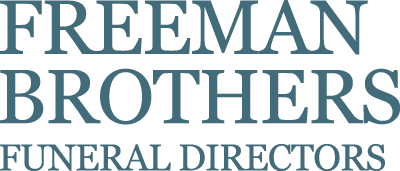Freeman Brothers has been carrying out funerals in Sussex and Surrey since 1855. As we have been so long established as Funeral Directors, we have a good sense of some of the most common questions people have around funerals. Taking feedback from colleagues in Horsham, Billingshurst, Crawley and Hurstpierpoint as to what we are asked frequently, we have produced a series of blog posts addressing some of these issues.
Today, we will be looking at what happens when someone has died and the death is designated as a Coroner’s case – why this happens and what differences it makes to the funeral.
In the UK, every death has to have a cause. Most people are expected to die because they are unwell and receiving medical care. A doctor who has been treating them, and knows the cause of death, then completes statutory paperwork (the Medical Certificate of Cause of Death, or MCCD). If this is not possible, then the death will be treated as a Coroner’s case, whether the person has died of natural causes – such as a heart attack – or from an accident, suicide, or crime against them. Therefore, if a person is being treated in hospital for cancer, and then appears to die following a seizure, the doctor(s) treating them may not feel able to complete the MCCD and so a referral would be made to the Coroner’s Office for further investigation.
Some deaths are initially deemed Coroner’s cases by accident. If an ambulance is called for after the death of a person who was known to be unwell and likely to die, this commences a chain of events which includes a preliminary Coroner’s investigation – and, probably, the person who has died being taken to a Public or Hospital Mortuary. If you are told that someone is likely to die soon, then you should also be told what you should do if and when it happens – the advice will usually be to call the Doctor or out-of-hours service. Make sure you have noted this and follow that advice – it is of course natural to feel the emergency services should be notified, but usually not necessary. We often receive calls from people who have been given the news that someone is to die soon, and we can advise what next steps should be when this happens. As in all cases, our advice is free and willingly given.
All unexpected deaths are referred to the Coroner, but they delegate authority to their Officers who investigate deaths referred to the Coroner’s Office. They will initially establish if the death is actually unexpected. If someone dies at home following outpatient treatment from a Hospice or a recent hospital discharge, a doctor there may be prepared to provide the cause of death. Where there is no such doctor, or the circumstances of the death make it clear that the death is unexpected, then further investigatory work begins. Often this will be in the form of a post-mortem, where the internal organs and tissues will be looked at and possibly samples taken. Once the cause of death is established, the death will be classified as ‘natural’ or ‘unnatural’ and the body will be released for a funeral.
‘Natural’ deaths (where the person has died of an illness, even if it was not known that they were suffering from it) do not require any further action. The investigation might take several weeks, particularly if there is a likelihood of criminal proceedings. No-one can do anything to expedite this process, or prevent a post-mortem from taking place. The person will not be able to have their funeral until the investigation concludes, but the Coroner’s Officer will advise when plans for the funeral can start being made.
‘Unnatural’ deaths – which include accidents and suicides – require an inquest to determine the circumstances leading to the death. Their purpose is not to ascribe blame but to provide a verdict. A funeral cannot take place until the inquest has been opened, so they will usually be opened and adjourned as a formality. The formal inquest can then take place at a future point, but the funeral can happen in the meantime. In this intervening period, the Coroner’s Office provides Certificate of the Fact of Death, usually called the ‘interim death certificate’. This confirms that the person has died and enables their affairs to be dealt with.
Some deaths automatically have an inquest. Any death in custody requires investigation even if the person was unwell. This is also true of some industrial diseases. The most common case where this applies is following exposure to asbestos, but if the person has had a tissue sample taken before their death, this is all that is usually required in the way of an examination.
An unexpected death is often thought to be more traumatic, and it’s certainly true that there might be factors which lead to more complicated feelings, such as a lack of opportunity say goodbye. However, all deaths can lead many different feelings, and responses to any type of death, whether that be sadness, relief, or acceptance, are normal.
If there are any questions about unexpected deaths, or any other matter, please do feel free to contact us and we will do our best to assist.






0 Comments